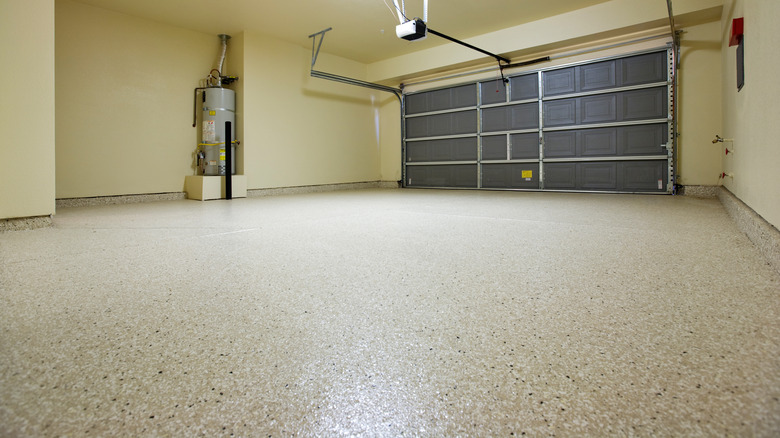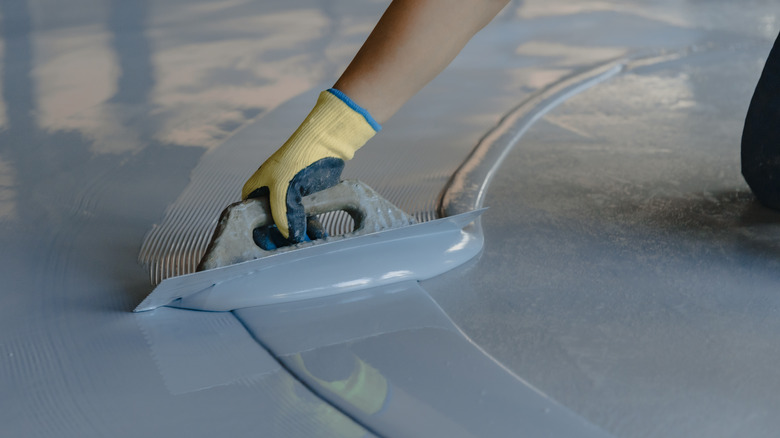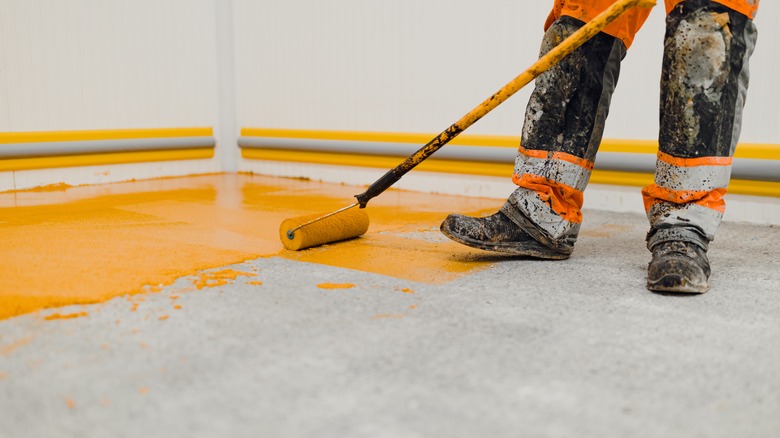Is A DIY Epoxy Garage Floor Going To Save You Money Or Give You A Headache?
Epoxy garage floors can be transformative, giving a dirty, stained, cracked cement floor new life and even making it a bit more durable for everyday traffic. Without a doubt, renovating your garage floor like this is a worthy process, but the big question is: do you do it yourself, or do you hire a professional to handle the work for you? In either case, before you upgrade your garage floor, you need to know what to expect.
Epoxy coatings are a type of material that's painted onto a surface, creating a new, level top that directly adheres to the concrete. You can choose from a range of epoxy, including high-solids, which has a larger amount of additives and pigment in it to give it more of a gritty, stone-like look. You can also select a solvent-based product, which helps build up its resistance to oil stains. A third option is water-based epoxies, which have the highest durability and are not likely to be damaged by scuffs, cleaning materials, gas, or oil. With the right product selected, your next step is to paint it on. It seems easy enough, and hiring a professional will cost more, so it's tempting to want to do the work yourself.
Before you can make that decision, though, consider what goes into the process of epoxy floor installation. This multi-step operation requires some cleaning, some research, and then a lot of work. It's certainly going to be a labor of love and will take some time.
Benefits and considerations for DIY epoxy garage flooring
One of the most common reasons to attempt to epoxy a garage floor yourself is to save money. Let's be frank, this is a lot of work, even if it's one of the best options for garage floors. Though estimates range widely based on location, the size of the area, and the materials you use, you can expect to pay around $2,000 to do it yourself. By comparison, the same 2-car garage will cost around $3,200 to $3,400 to have a professional install.
Doing it yourself does offer a few other benefits, including being able to create the surface the way you would like to, for example, adding in various additives and sprinkling in chips or flakes to create a custom look. There's also something to be said about doing the work yourself to contribute to the aesthetic and function of your home.
Note that you'll need to compare the various products available and learn the process of applying these floors. This typically includes prepping the surface of the concrete, adding a moisture barrier primer, and then applying several coats of epoxy. You'll also need to topcoat it to seal it. If you're handy and patient enough to get the process just right, it can be something you spend a few days working on in your spare time.
Make sure you can overcome the challenges of doing it yourself
What's so hard about painting on a garage floor surface? It seems easy enough, but the extra money that you would pay a professional does have a few advantages to think about. The first is that you'll need to purchase the right supplies. That starts with cleaners, scrapers, degreasers, and other concrete patching materials. Some epoxy garage floor kits contain most of what you need, but you'll still need to consider purchasing or renting a concrete grinder if your garage floor has serious damage.
The real problem comes in making a mistake. If there's just a small amount of debris or oil left on the surface of the garage floor, that could make it impossible for the epoxy to bond properly. Another problem is not mixing the products fully (which is an easy mistake to make when you're talking about 5-gallon buckets). This often leads to improper application and blistering. Even the weather can work against you if it's too humid or too hot.
DIY epoxy garage floors also require time and attention to detail. If this is your first time using a product like this, it's going to be more challenging to get it right and have that professional look you want to show off to friends and family. If you don't care about the finished quality (and don't mind having to potentially repair it down the road), do it yourself. Otherwise, this is a job to leave to the pros whenever possible.


